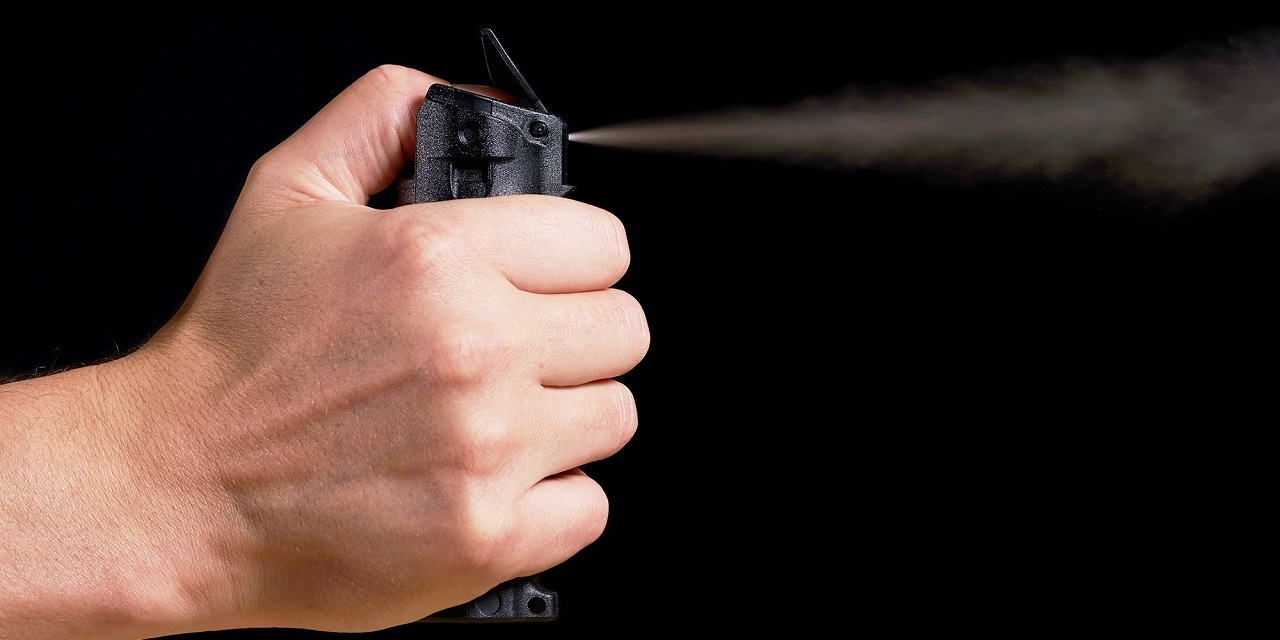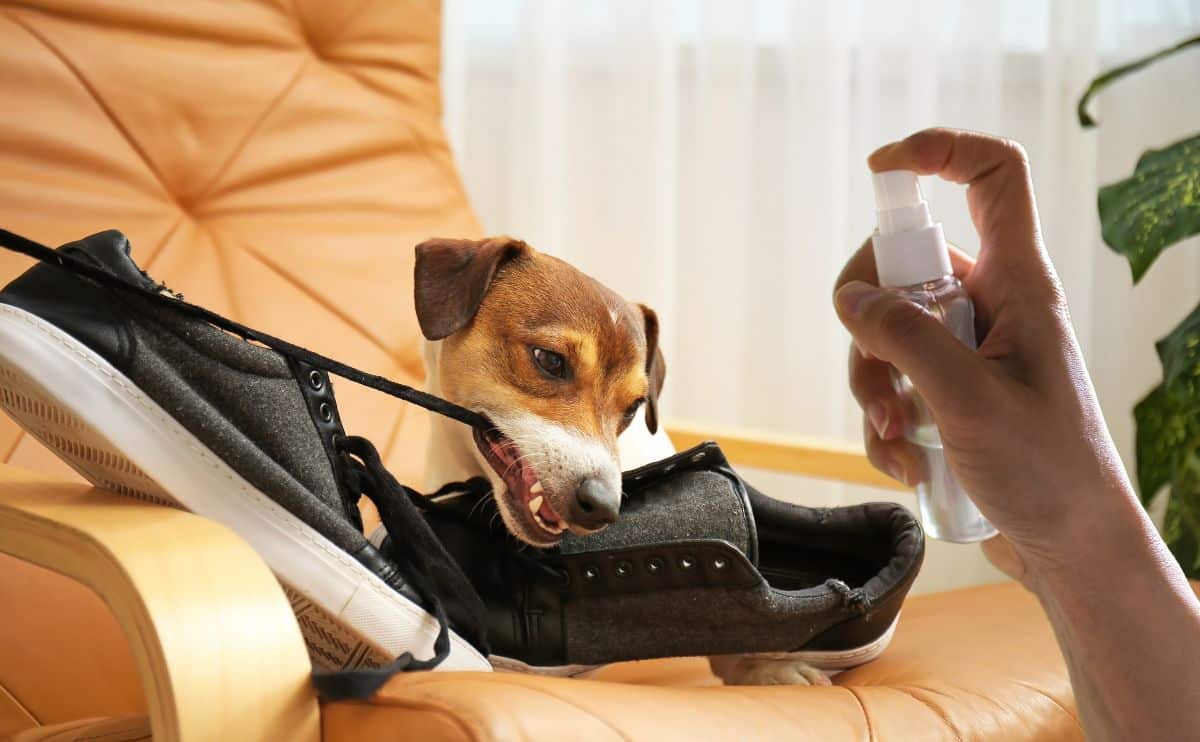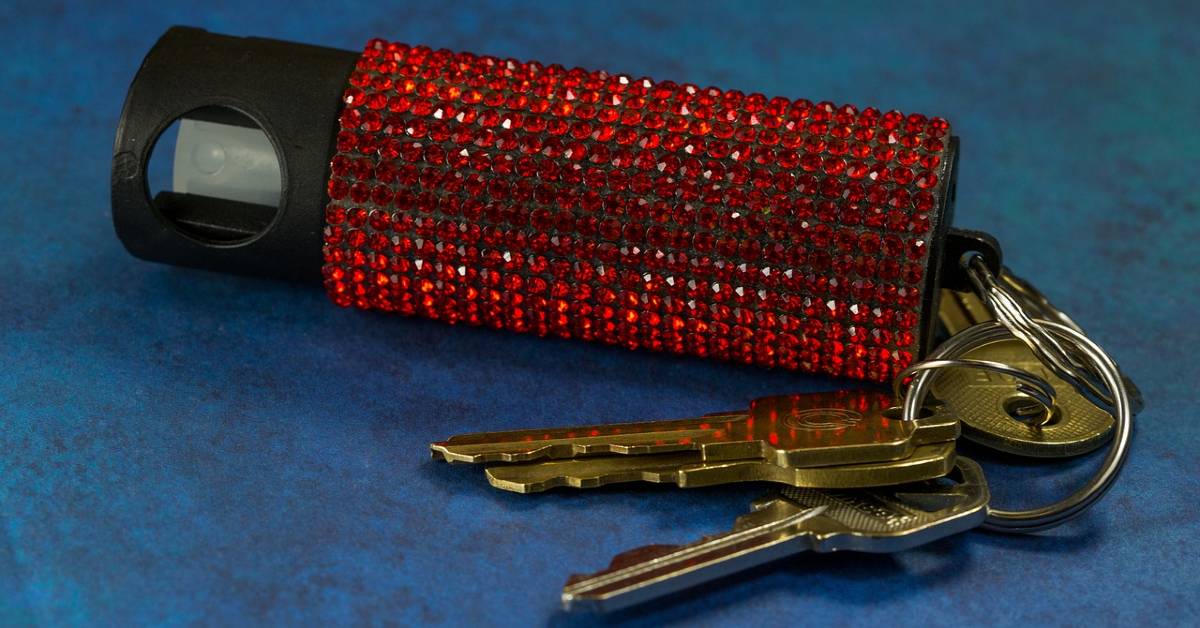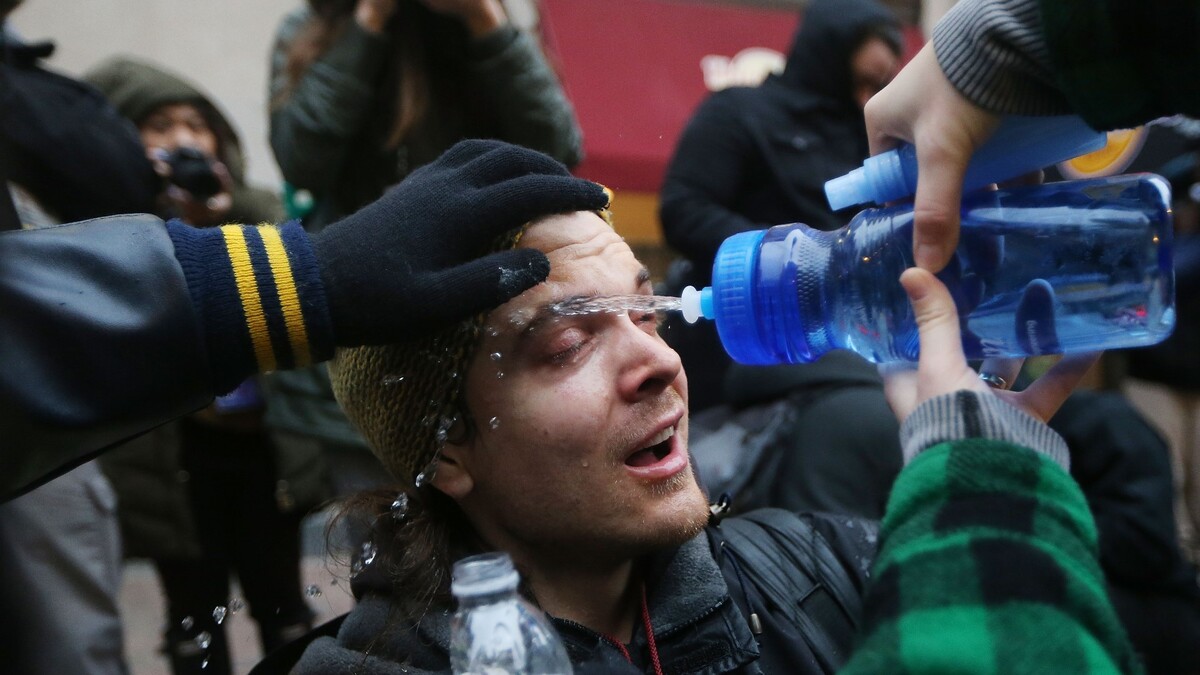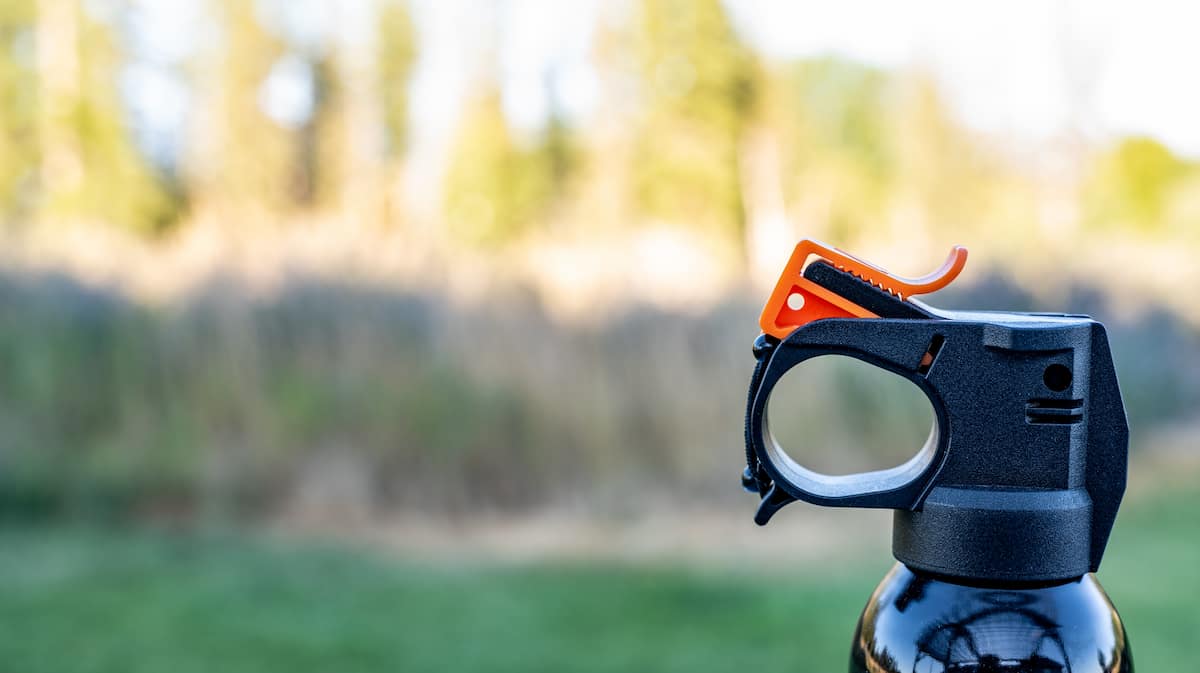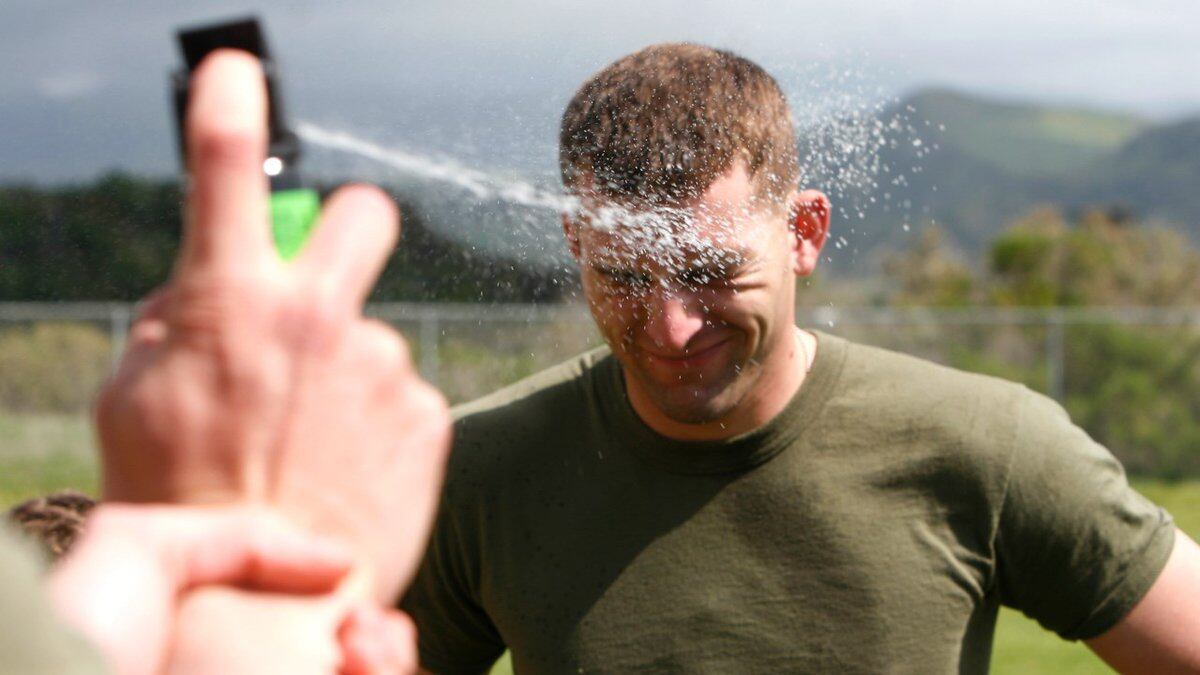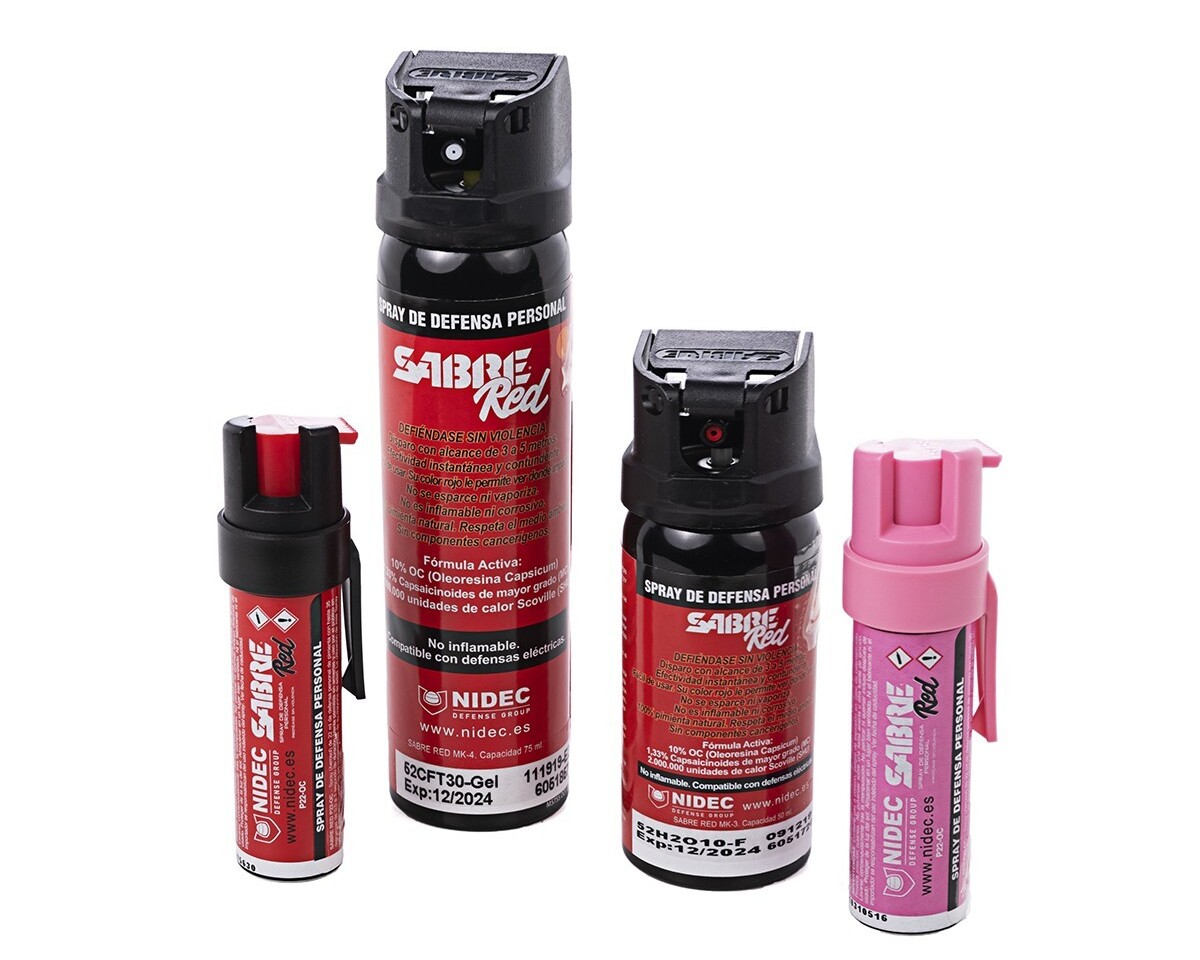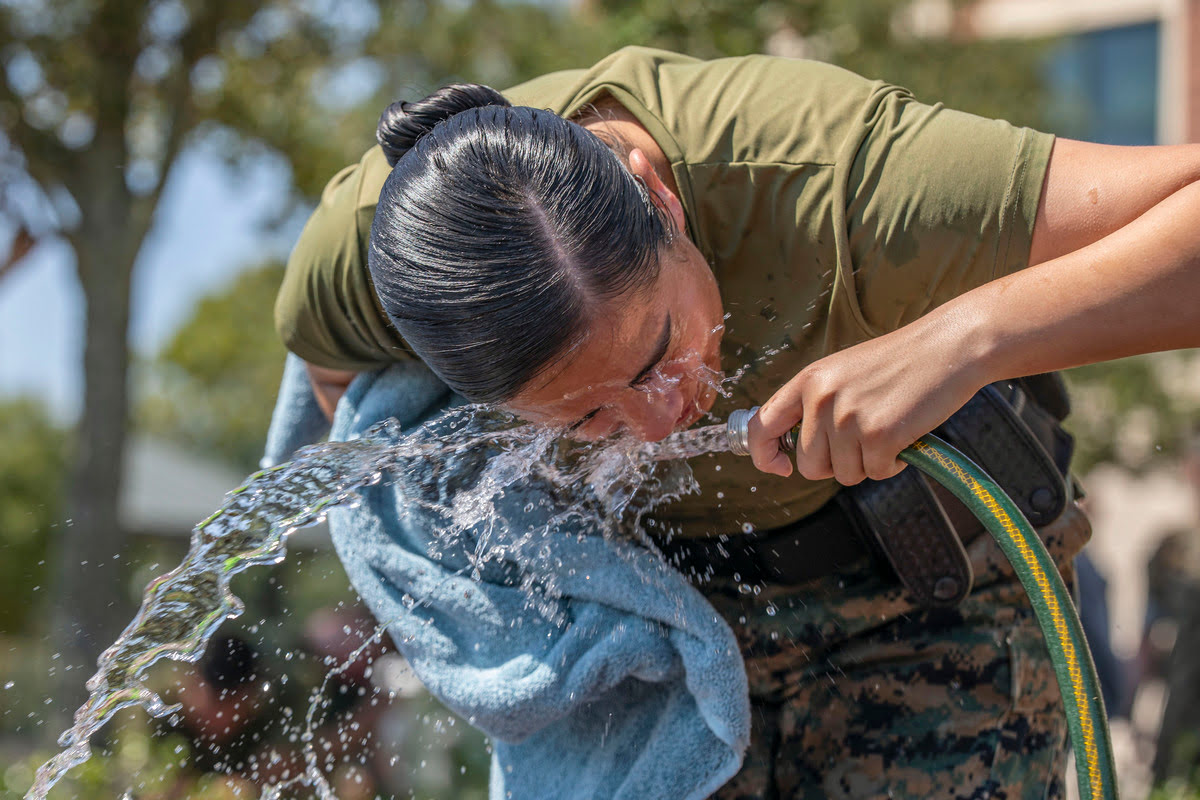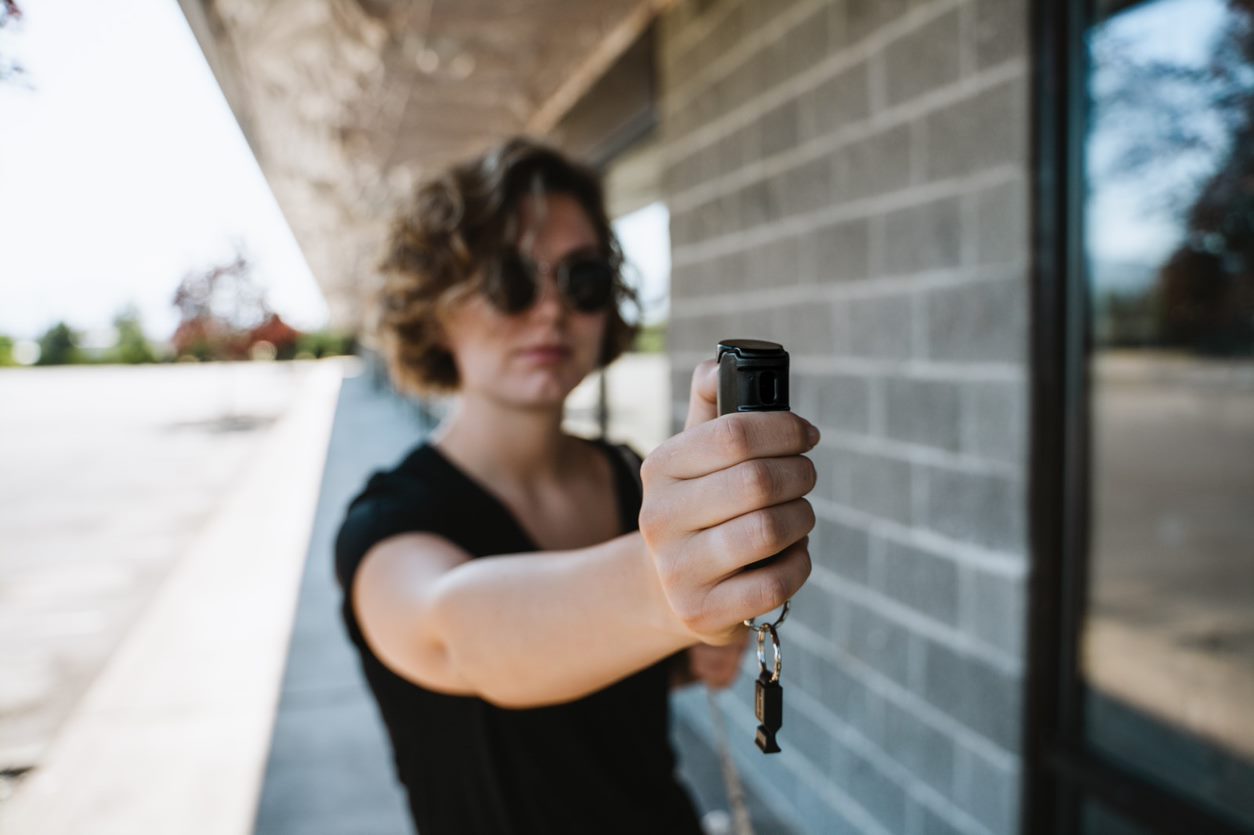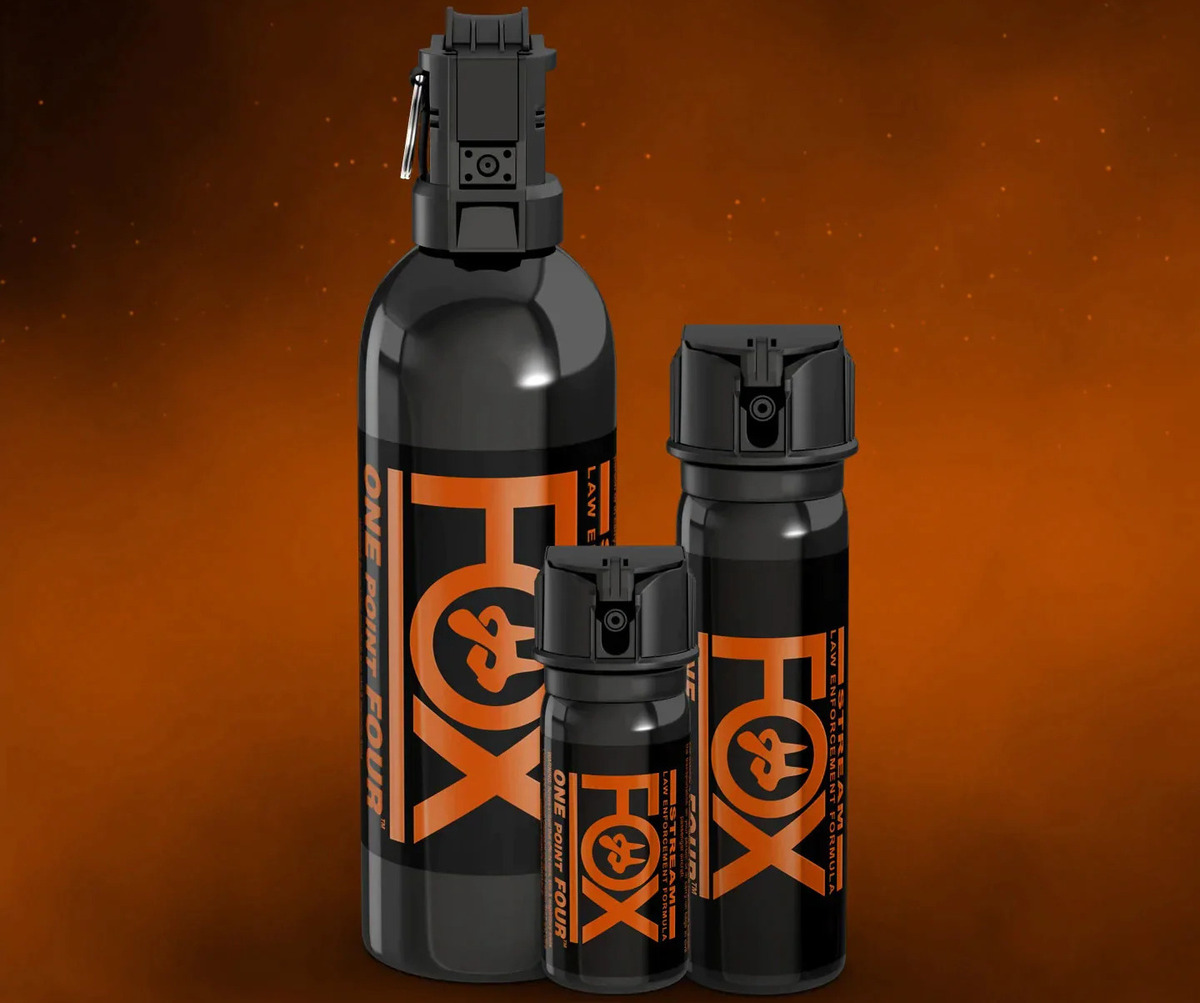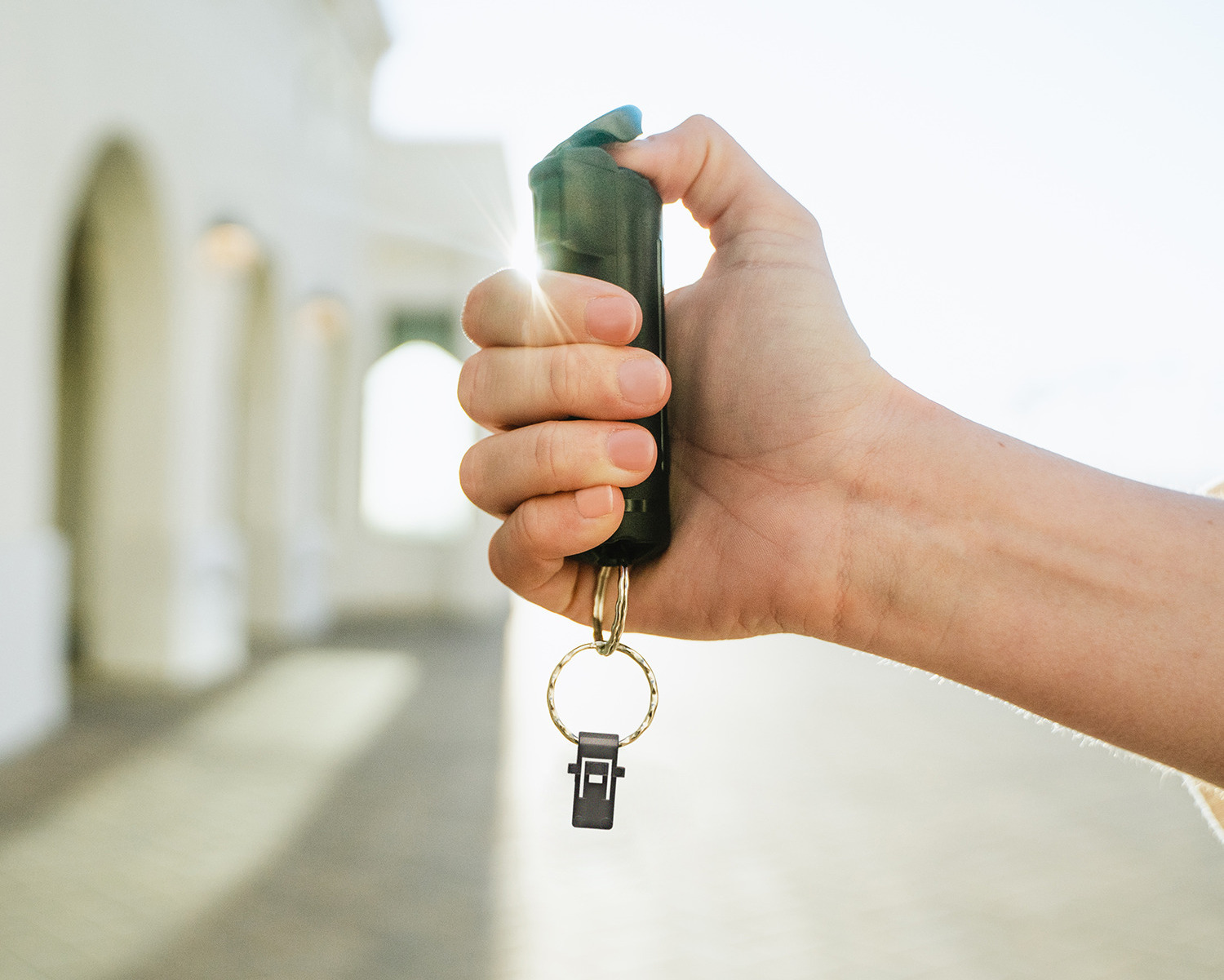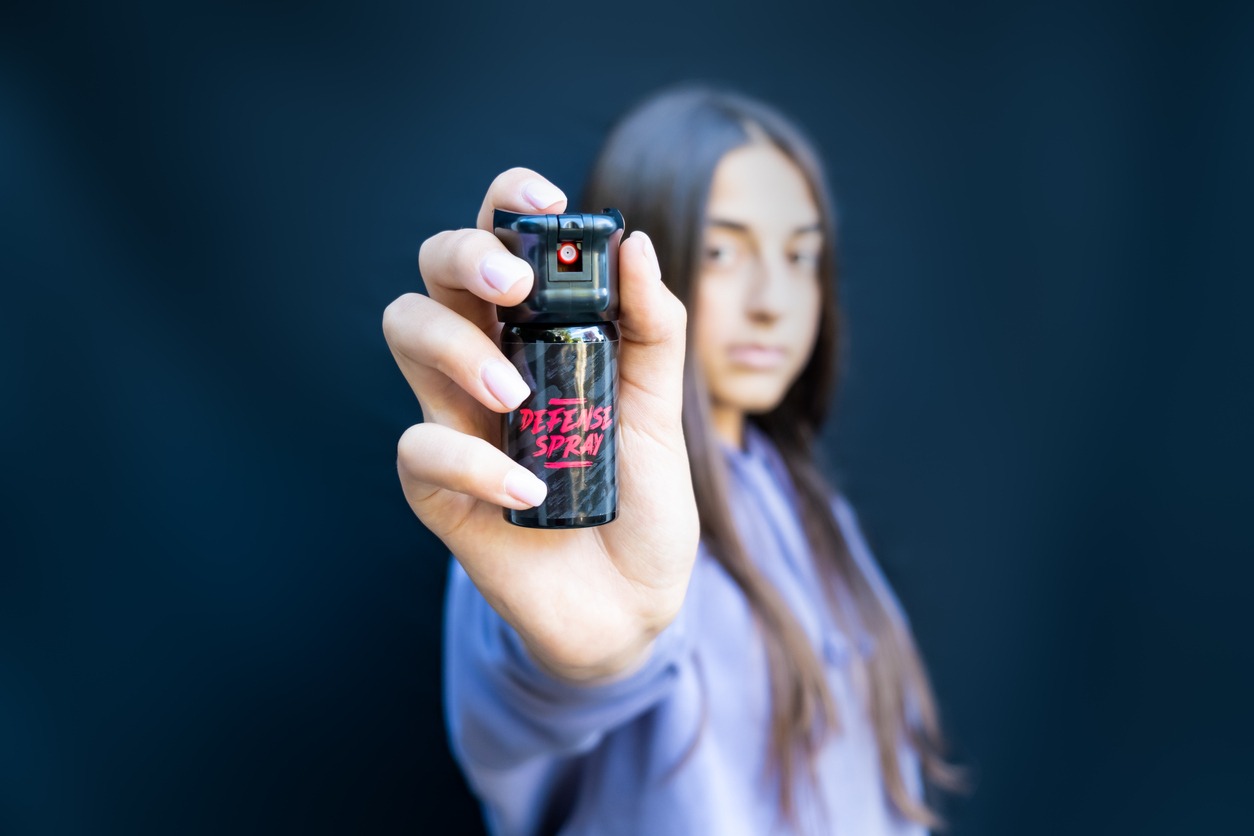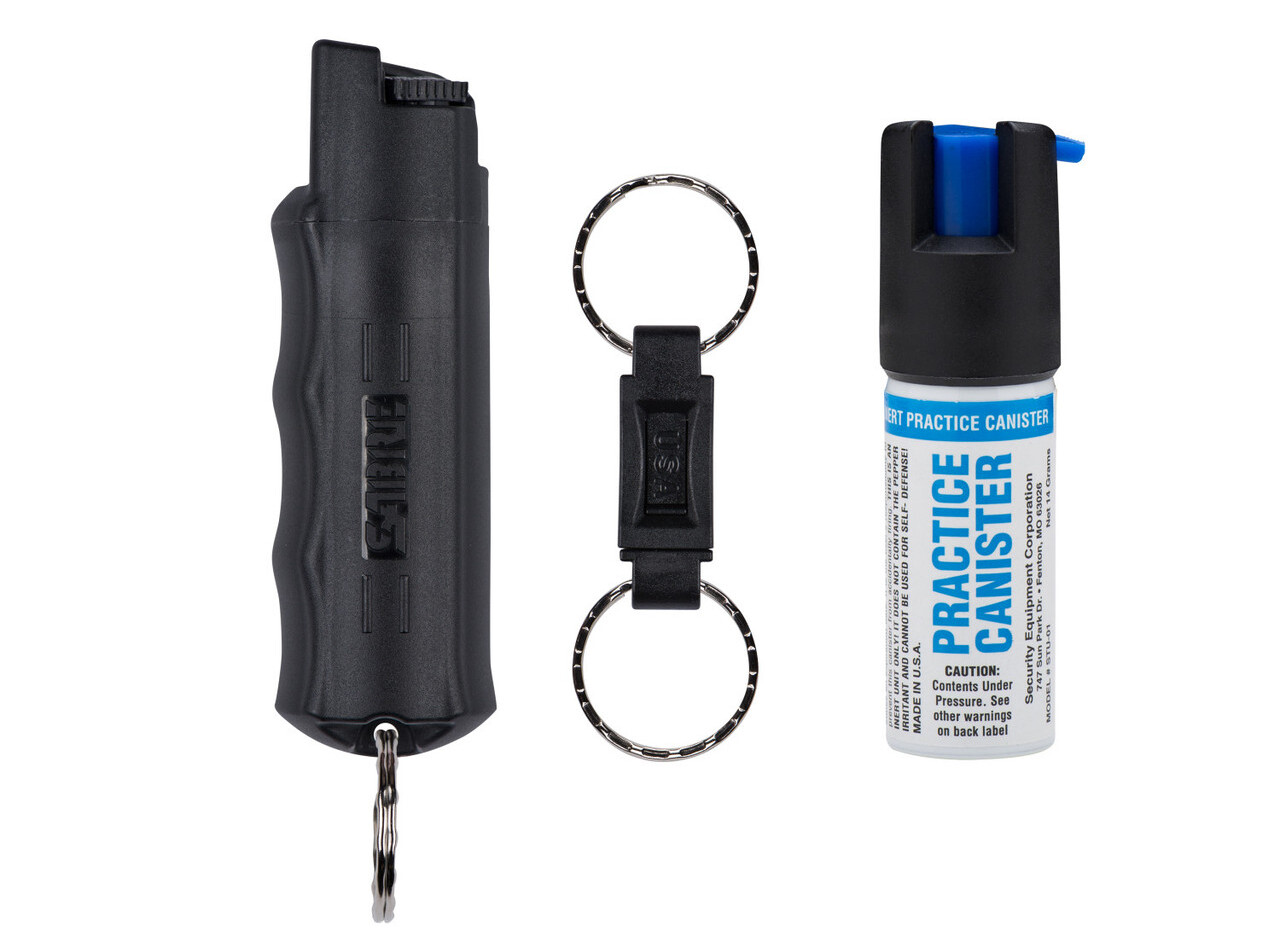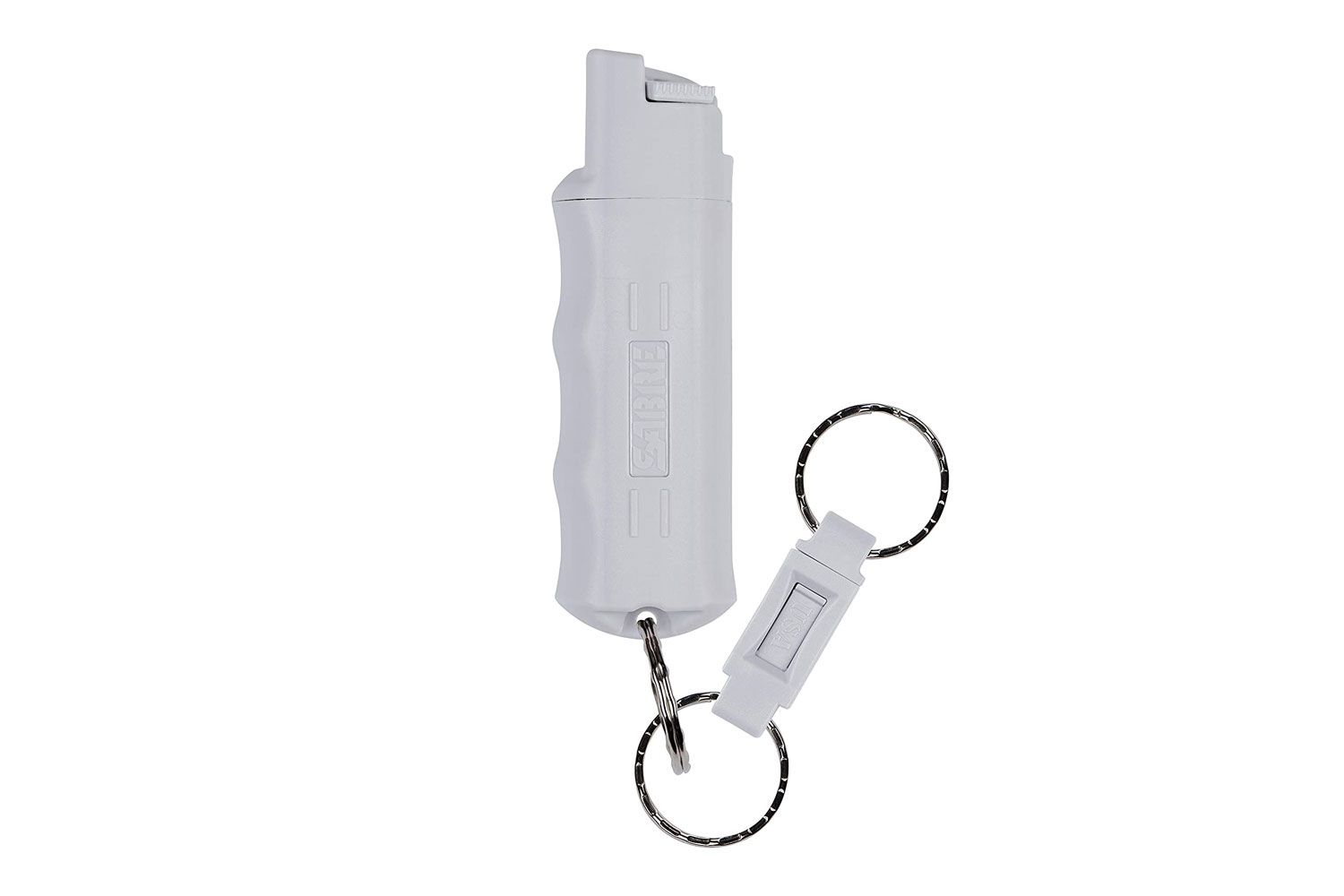Home>Home Security and Surveillance>How To Survive A Pepper Spray Attack


Home Security and Surveillance
How To Survive A Pepper Spray Attack
Modified: March 6, 2024
Learn essential techniques and precautions for surviving a pepper spray attack with our home security and surveillance tips. Stay safe and prepared!
(Many of the links in this article redirect to a specific reviewed product. Your purchase of these products through affiliate links helps to generate commission for Storables.com, at no extra cost. Learn more)
Introduction
Welcome to your comprehensive guide on how to survive a pepper spray attack! In today’s world, personal safety and self-defense have become increasingly important. Whether you’re walking alone at night, going for a jog, or simply wanting to feel more secure in your daily life, understanding how to handle a pepper spray attack can make all the difference.
Pepper spray, also known as OC spray (oleoresin capsicum), is a widely used self-defense tool. It is a non-lethal irritant that temporarily incapacitates an attacker by causing severe burning, pain, and inflammation to the eyes, nose, throat, and skin.
While pepper spray can be highly effective in deterring an assailant, it is crucial to be well-prepared and informed about how to react in a potentially harmful situation. In this guide, we will explore the ins and outs of pepper spray attacks, providing you with the knowledge and strategies to effectively protect yourself.
It is important to note that this guide is for informational purposes only and should not replace professional advice. If you have specific concerns about your safety, it is always recommended to consult with local law enforcement or self-defense professionals.
Now, let’s dive into the world of pepper spray and learn how to stay safe and confident in any potential encounters.
Key Takeaways:
- Be Prepared
Prepare for a pepper spray attack by choosing the right spray, training in self-defense, and creating a plan. Stay aware of your surroundings and practice retrieving and using the spray to increase readiness. - Stay Safe and Seek Help
During and after a pepper spray attack, remain calm, protect your face, and seek fresh air. Follow decontamination steps, seek medical attention if needed, and be aware of legal considerations.
Read more: How To Store Pepper Spray
Understanding Pepper Spray
Before we delve into the techniques of dealing with a pepper spray attack, it is essential to have a basic understanding of what pepper spray is and how it works.
Pepper spray is a non-lethal self-defense weapon that contains a derivative of chili peppers called capsaicin. When sprayed on an assailant, capsaicin irritates the mucous membranes of the eyes, nose, throat, and skin, causing intense pain, inflammation, and temporary blindness. It can also lead to difficulty breathing and disorientation.
Most pepper sprays come in small canisters that can easily be carried in a purse or pocket. They are typically divided into two categories: stream sprays and fogger sprays. Stream sprays emit a concentrated stream of pepper spray, offering precise targeting at a distance, while fogger sprays release a cloud of spray, providing wider coverage but shorter range.
Pepper spray usually comes in different strength levels, measured in Scoville Heat Units (SHU). The higher the SHU, the more potent the pepper spray. It is crucial to check the legality of pepper spray in your jurisdiction and ensure that you choose a product that complies with local regulations.
When purchasing pepper spray, it is essential to read and understand the instructions on proper usage and storage. Familiarize yourself with the spray’s expiration date and replace it accordingly. Keep in mind that exposure to extreme temperatures or sunlight can degrade its effectiveness.
Knowing the characteristics of pepper spray can help you make an informed decision when choosing a product and can increase your confidence in using it as a self-defense tool.
Preparing for a Pepper Spray Attack
While we hope to never find ourselves in a situation where we need to use pepper spray, it is crucial to be prepared for any potential threat. Here are some steps you can take to prepare yourself for a pepper spray attack:
- Choose the right pepper spray: Select a pepper spray that is legal in your area and suits your needs. Consider factors such as spray range, spray pattern, and size of the canister. Opt for a reputable brand and read reviews to ensure its effectiveness.
- Familiarize yourself with the spray: Take the time to read and understand the instructions that come with your pepper spray. Practice holding and using the canister, so you are familiar with its operation in case of an emergency.
- Train in self-defense techniques: While pepper spray can be a powerful tool, it shouldn’t be your only method of self-defense. Consider enrolling in a self-defense class or workshop to learn practical techniques to protect yourself. These skills can help you if pepper spray fails or is not accessible in a high-stress situation.
- Develop situational awareness: Pay attention to your surroundings and be aware of any potential dangers. Avoid isolated areas, especially at night, and trust your instincts if something feels off. By being aware of your environment, you can potentially avoid confrontations altogether.
- Practice retrieval and deployment: Be familiar with how to retrieve your pepper spray quickly and efficiently. Practice the motion of aiming and spraying in a controlled environment. This muscle memory can be invaluable if you ever need to use it in a real-life situation.
- Create a self-defense plan: Think about different scenarios and mentally prepare yourself for a potential pepper spray attack. Visualize how you would react, where you would aim the spray, and what actions you would take afterward. Having a plan in mind can help you remain calm and focused if faced with a dangerous situation.
- Carry pepper spray within reach: Ensure that your pepper spray is easily accessible and within reach at all times. Consider carrying it in a pocket, purse, or clipped to your belt. However, be mindful of local regulations regarding carrying and concealing pepper spray.
Remember, the key to effective self-defense is preparation and practice. By following these steps and being proactive, you can increase your readiness to handle a pepper spray attack.
Reacting during a Pepper Spray Attack
When facing a pepper spray attack, it is crucial to remain calm and act quickly in order to minimize the effects of the spray. Here are some important steps to follow:
- Move away from the spray: If possible, immediately move in the opposite direction of the spray to minimize your exposure. Try to create distance between yourself and the attacker to reduce the impact of the spray.
- Close your eyes and protect your face: As soon as you realize you are being sprayed, shut your eyes tightly to prevent the spray from reaching your eyes. Use your hands to cover your face, creating a barrier that can help shield your nose and mouth.
- Breathe through your nose: While covering your mouth, try to inhale through your nose. Breathing through your nose can help minimize the risk of inhaling the spray, as the nasal passages can filter out some of the irritants.
- Blow your nose and clear your airways: After the spray is no longer directly affecting you, gently blow your nose to remove any residual irritants. This can help alleviate some of the discomfort and aid in breathing normally.
- Do not touch your face: Avoid touching or rubbing your face, as this can spread the pepper spray to other areas of your skin and worsen the effects. If possible, use a clean cloth or towel to blot away any excess spray.
- Seek fresh air: If indoors or in an enclosed space, assess the situation and move towards an area with fresh air. The outdoor environment can help in dissipating the irritants and provide relief from the effects of the spray.
- Do not use water: While it may be tempting to wash the spray off with water, do not use water as it can potentially worsen the effects by spreading the capsaicin. Instead, focus on decontamination methods that will be discussed in the next section.
- Alert authorities and seek help: Once you are in a safe location, contact local law enforcement to report the incident. Provide them with a description of the attacker and any other relevant details that can assist in their investigation. If you require medical attention, call for assistance and explain the situation.
It is important to remember that everyone’s sensitivity to pepper spray can vary, and individual reactions may differ. The key is to prioritize your safety and take the necessary steps to minimize the impact of the spray on your well-being.
When hit with pepper spray, try to remain calm and avoid rubbing your eyes, as this can make the burning sensation worse. Instead, flush your eyes with water and seek fresh air.
Decontamination and Aftercare
After experiencing a pepper spray attack, it is crucial to take immediate steps to decontaminate yourself and provide aftercare to minimize discomfort and aid in the recovery process. Here are some essential decontamination and aftercare measures to consider:
- Move to a well-ventilated area: If you are still in the vicinity where the pepper spray attack occurred, move to an open and well-ventilated area to allow fresh air to circulate.
- Remove contaminated clothing: If your clothing has been exposed to pepper spray, remove it carefully to avoid spreading the irritant to other parts of your body. Place the clothing in a bag or set aside for proper cleaning.
- Do not touch your face: Avoid touching your face or any other part of your body that may have been exposed to the pepper spray. This can help prevent further irritation and the spread of capsaicin.
- Wash with mild soap and water: Use lukewarm water and a mild soap to wash the affected areas of your skin thoroughly. Gently cleanse your face, neck, and any other exposed areas to remove the capsaicin residue.
- Avoid harsh substances: Refrain from using harsh chemicals, alcohol, or oil-based products on your skin, as they can worsen the irritation caused by the pepper spray.
- Cool compresses: Applying a cool compress or ice pack wrapped in a clean cloth can help soothe the burning sensation and reduce swelling. Use it on affected areas for short intervals at a time.
- Hydrate your body: Drink plenty of water to help flush out any remaining capsaicin from your system. Staying hydrated can also aid in reducing inflammation and promoting overall recovery.
- Avoid touching your eyes: Resist the urge to touch or rub your eyes, as they may still be sensitive and prone to further irritation. If necessary, rinse your eyes gently with cool water.
- Consult a healthcare professional: If you experience severe or prolonged symptoms such as difficulty breathing, extreme pain, or persistent eye irritation, seek medical attention as soon as possible.
Remember that everyone’s reaction to pepper spray can vary, and it may take time to fully recover from the effects. Be patient with the healing process and continue to monitor your symptoms. If you have any concerns or questions, don’t hesitate to seek professional medical advice.
By following these decontamination and aftercare measures, you can help alleviate the discomfort and promote a quicker recovery after a pepper spray attack.
Read more: What Is Pepper Spray
Seeking Medical Attention
While most pepper spray encounters result in temporary discomfort and minor irritations, there are instances where seeking medical attention may be necessary. Here are some situations where seeking professional medical care is advisable:
- Severe symptoms: If you experience severe symptoms such as difficulty breathing, chest pain, or persistent eye irritation that worsens over time, it is crucial to seek immediate medical attention. These symptoms may indicate a severe reaction or underlying health concerns that require professional evaluation.
- Prolonged discomfort: If you continue to experience significant discomfort, pain, or inflammation after following the decontamination and aftercare measures, it is advisable to consult a healthcare professional. They can assess the extent of the exposure and provide appropriate treatment to alleviate your symptoms.
- Eye irritation or vision problems: If you are experiencing persistent eye irritation, blurred vision, or any vision-related concerns after a pepper spray attack, it is essential to have your eyes examined by an optometrist or ophthalmologist. They can assess any potential damage to your eyes and provide suitable treatment or medication.
- Pre-existing medical conditions: Individuals with pre-existing respiratory conditions, allergies, or other health conditions may be more susceptible to the effects of pepper spray. It is crucial to consult with a healthcare professional to assess any potential risks and receive appropriate medical advice tailored to your specific needs.
- Psychological support: Pepper spray attacks can be traumatic experiences, leading to emotional distress or anxiety. If you are struggling with the aftermath of the incident and find it difficult to cope, consider seeking professional psychological support from a therapist or counselor who can help you process the event.
When seeking medical attention, provide a detailed account of the pepper spray exposure to the healthcare professional. Mention any lingering symptoms, pre-existing medical conditions, or concerns you may have. This information will help them assess your situation accurately and provide the necessary care.
Remember, it is always better to err on the side of caution when it comes to your health. If you have any doubts or concerns about your well-being after a pepper spray attack, seeking medical attention is the best course of action.
Legal Considerations
When it comes to purchasing, carrying, and using pepper spray, it is important to be aware of the legal considerations in your jurisdiction. Laws regarding pepper spray can vary from country to country, and even within different states or regions. Here are some key points to consider:
- Know the local laws: Familiarize yourself with the laws and regulations regarding pepper spray in your area. Research the legality of possession, purchase, and use of pepper spray, as well as any restrictions on strength or size limits. This information can typically be found through local law enforcement or government websites.
- Age restrictions: Many jurisdictions have age restrictions on the purchase and ownership of pepper spray. Make sure to comply with the minimum age requirements to avoid legal complications.
- Permit requirements: Some areas may require individuals to obtain permits or licenses to carry pepper spray legally. Check if you need any special permits and follow the necessary procedures to ensure compliance.
- Restrictions on certain locations: Certain locations, such as airports, government buildings, schools, or public transportation, may have restrictions on carrying pepper spray. Be aware of these restricted areas to avoid legal issues.
- Proper use: Pepper spray should only be used as a self-defense tool in situations where you feel threatened or at risk. Improper use, such as using it for offensive purposes or in non-threatening situations, can have legal consequences.
- Training and self-defense laws: Some jurisdictions may have specific laws related to self-defense and the use of force. Take the time to familiarize yourself with these laws to ensure that you are using pepper spray within legal boundaries.
- Reporting an incident: If you are involved in a pepper spray incident, it is important to report it to the authorities. Provide a detailed account of the incident and cooperate fully with any investigations. This can help establish your compliance with the law and protect your rights.
Remember that this information is a general overview, and it is essential to consult the specific laws and regulations in your area. Laws can change over time, so staying informed about any updates is crucial.
By understanding and abiding by the legal considerations surrounding pepper spray, you can ensure that you are using it responsibly, within the confines of the law, and for purposes of self-defense.
Conclusion
Congratulations! You have now gained a comprehensive understanding of how to survive a pepper spray attack and protect yourself in potentially dangerous situations. By familiarizing yourself with pepper spray, preparing for potential encounters, and knowing how to react during an attack, you can increase your chances of staying safe.
Remember, pepper spray is a valuable self-defense tool, but it should be used responsibly and within the boundaries of the law. Be sure to check the legal considerations in your jurisdiction to ensure you are compliant and aware of any restrictions or requirements.
Furthermore, it is important to engage in ongoing training, both in self-defense techniques and in handling pepper spray, to increase your confidence and preparedness. Stay aware of your surroundings, trust your instincts, and continually improve your situational awareness to minimize potential risks.
In the unfortunate event of a pepper spray attack, it is crucial to remain calm, protect your face, and seek fresh air as quickly as possible. Following the decontamination and aftercare steps can help alleviate the discomfort and aid in your recovery. If necessary, don’t hesitate to seek medical attention or psychological support to address any lingering effects.
Keep in mind that personal safety and self-defense go beyond just pepper spray. Take the time to explore other self-defense options, such as self-defense classes or workshops, to develop a well-rounded skill set and increase your confidence in protecting yourself.
Remember, this guide serves as an informative resource, but it is always recommended to seek professional advice or consult with local law enforcement when it comes to your personal safety and self-defense strategies.
Stay prepared, stay vigilant, and stay safe!
Frequently Asked Questions about How To Survive A Pepper Spray Attack
Was this page helpful?
At Storables.com, we guarantee accurate and reliable information. Our content, validated by Expert Board Contributors, is crafted following stringent Editorial Policies. We're committed to providing you with well-researched, expert-backed insights for all your informational needs.
